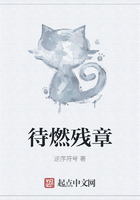A misfortune, of which she was unconscious, but which was torture to Emilio, kept up a singular barrier between them. Massimilla, young as she was, had the majestic bearing which mythological tradition ascribes to Juno, the only goddess to whom it does not give a lover; for Diana, the chaste Diana, loved! Jupiter alone could hold his own with his divine better-half, on whom many English ladies model themselves.
Emilio set his mistress far too high ever to touch her. A year hence, perhaps, he might not be a victim to this noble error which attacks none but very young or very old men. But as the archer who shoots beyond the mark is as far from it as he whose arrow falls short of it, the Duchess found herself between a husband who knew he was so far from reaching the target, that he had ceased to try for it, and a lover who was carried so much past it on the white wings of an angel, that he could not get back to it. Massimilla could be happy with desire, not imagining its issue; but her lover, distressful in his happiness, would sometimes obtain from his beloved a promise that led her to the edge of what many women call "the gulf," and thus found himself obliged to be satisfied with plucking the flowers at the edge, incapable of daring more than to pull off their petals, and smother his torture in his heart.
They had wandered out together that morning, repeating such a hymn of love as the birds warbled in the branches. On their return, the youth, whose situation can only be described by comparing him to the cherubs represented by painters as having only a head and wings, had been so impassioned as to venture to hint a doubt as to the Duchess' entire devotion, so as to bring her to the point of saying: "What proof do you need?"
The question had been asked with a royal air, and Memmi had ardently kissed the beautiful and guileless hand. Then he suddenly started up in a rage with himself, and left the Duchess. Massimilla remained in her indolent attitude on the sofa; but she wept, wondering how, young and handsome as she was, she could fail to please Emilio. Memmi, on the other hand, knocked his head against the tree-trunks like a hooded crow.
But at this moment a servant came in pursuit of the young Venetian to deliver a letter brought by express messenger.
Marco Vendramini,--a name also pronounced Vendramin, in the Venetian dialect, which drops many final letters,--his only friend, wrote to tell him that Facino Cane, Prince of Varese, had died in a hospital in Paris. Proofs of his death had come to hand, and the Cane-Memmi were Princes of Varese. In the eyes of the two young men a title without wealth being worthless, Vendramin also informed Emilio, as a far more important fact, of the engagement at the /Fenice/ of the famous tenor Genovese, and the no less famous Signora Tinti.
Without waiting to finish the letter, which he crumpled up and put in his pocket, Emilio ran to communicate this great news to the Duchess, forgetting his heraldic honors.
The Duchess knew nothing of the strange story which made la Tinti an object of curiosity in Italy, and Emilio briefly repeated it.
This illustrious singer had been a mere inn-servant, whose wonderful voice had captivated a great Sicilian nobleman on his travels. The girl's beauty--she was then twelve years old--being worthy of her voice, the gentleman had had the moderation to have brought her up, as Louis XV. had Mademoiselle de Romans educated. He had waited patiently till Clara's voice had been fully trained by a famous professor, and till she was sixteen, before taking toll of the treasure so carefully cultivated.
La Tinti had made her debut the year before, and had enchanted the three most fastidious capitals of Italy.
"I am perfectly certain that her great nobleman is not my husband," said the Duchess.
The horses were ordered, and the Duchess set out at once for Venice, to be present at the opening of the winter season.
So one fine evening in November, the new Prince of Varese was crossing the lagoon from Mestre to Venice, between the lines of stakes painted with Austrian colors, which mark out the channel for gondolas as conceded by the custom-house. As he watched Massimilla's gondola, navigated by men in livery, and cutting through the water a few yards in front, poor Emilio, with only an old gondolier who had been his father's servant in the days when Venice was still a living city, could not repress the bitter reflections suggested to him by the assumption of his title.
"What a mockery of fortune! A prince--with fifteen hundred francs a year! Master of one of the finest palaces in the world, and unable to sell the statues, stairs, paintings, sculpture, which an Austrian decree had made inalienable! To live on a foundation of piles of campeachy wood worth nearly a million of francs, and have no furniture! To own sumptuous galleries, and live in an attic above the topmost arabesque cornice constructed of marble brought from the Morea --the land which a Memmius had marched over as conqueror in the time of the Romans! To see his ancestors in effigy on their tombs of precious marbles in one of the most splendid churches in Venice, and in a chapel graced with pictures by Titian and Tintoretto, by Palma, Bellini, Paul Veronese--and to be prohibited from selling a marble Memmi to the English for bread for the living Prince Varese! Genovese, the famous tenor, could get in one season, by his warbling, the capital of an income on which this son of the Memmi could live--this descendant of Roman senators as venerable as Caesar and Sylla.
Genovese may smoke an Eastern hookah, and the Prince of Varese cannot even have enough cigars!"















